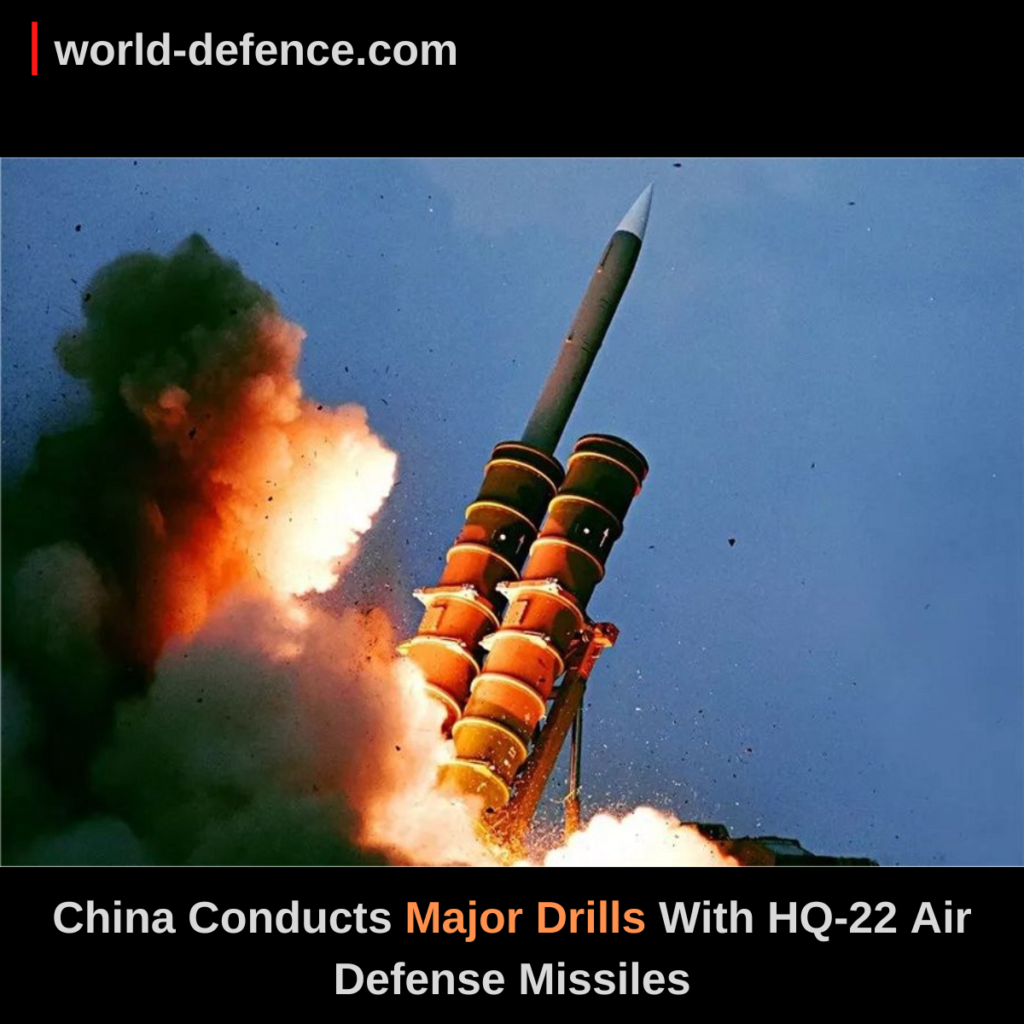Described as a “systematic confrontational” exercise, it was flown in China’s domestically developed strategic airlift Y-20 aircraft to northwest China’s Ningxia Hui Autonomous Region, northern China’s Inner Mongolia Autonomous Region, and northwestern China’s Gansu Province.
A Global Times report quoted experts saying it will significantly enhance China’s air defense capability.
HQ-22: China’s Third-Best Long-Range Air Defense Platform
The HQ-22 is the PLAAF’s third leading long-range surface-to-air missile (SAM) system after the S-300 and the S-400.
In this “systematic confrontational” exercise, the PLAAF tested its quick deployment capability by flying with Y-20 large transport aircraft. “This method will significantly enhance China’s air defense flexibility,” the report in the Global Times added.
The SAM platform, which has a range of roughly 170 kilometers, can engage aircraft, jets, helicopters, cruise missiles, and drones. Each HQ-22 anti-aircraft missile system has three launchers and four transport-launch containers each and can direct 12 anti-aircraft guided missiles simultaneously at six targets. Each missile has a semi-active radar as a homing head.
The last movement of the HQ-22 was reported on August 2 last year, during US Speaker Nancy Pelosi’s visit to Taiwan. Videos on social media and the information accompanying them said China was moving them to the coast when it retaliated with massive live-fire air and naval maneuvers around the island.
Stationed in Southwest China’s border region, the missile battalion is affiliated with the PLA’s Southern Theater Command. The PLAAF maneuvers also saw the participation of other aerial combat units, land-based surface-to-surface, and SAM platforms.
Aimed To Get All Working Together
Global Times said the “battalion coordinated with friendly forces against hostile ones, simulated more than 50 missile launches, and defended against over 30 systematic targets in mock combats.”
The CCTV report included footage showing an HQ-22 air defense missile launcher vehicle entering a Y-20 large transport aircraft.
Long-range, rapid deployment of heavy surface-to-air missiles has great tactical and even strategic significance, as it enables the PLA to enhance regional air defense flexibly, according to an unnamed Chinese military expert quoted by GT.
The PLAAF’s Y-20 transport plane appears particularly central to the entire scheme of things since its presence in large numbers does allow a lot of military and military-oriented movement within the country.
Moreover, since China does not aim to fight expeditionary wars in faraway lands (except Taiwan), where it would have to transfer tens of thousands of troops, it leaves the Y-20 free for heavy airlifts within the country. It supports the war effort in the western Pacific.
Moreover, the Global Times report added that the PLAAF is “practicing” the long-range transport of the HQ-22, which raises the question of whether the exercise was meant to refine its strategic airlift capability or get the HQ-22 crew used to the different regions around China. It appears to be both.
Transported In Y-20 Before
This is also not the first time that the HQ-22 has been transported in the Y-20 this way. In April 2022, many Y-20 large transport aircraft flew from China to Serbia over several consecutive days to deliver the FK-3 SAM platform (the HQ-22’s export version) that the Balkan nation purchased.
Observers called the mission at the time the largest overseas operation by the Y-20 and Beijing’s rise as a major arms exporter.
South China Morning Post (SCMP) put the figure at six Y-20s flying “12 covert sorties” to transport part of the three FK-3 units. Hong Kong-based military expert Liang Guoliang estimates 12 Y-20s to haul the full complement of the systems purchased by Serbia.
Another coverage of a separate HQ-22 system in CCTV quoted one of the military personnel saying that the purpose was more towards synergizing units using different systems and weapons. “It is to fully conduct the exercises in all its different stages, with different units that use different weapons at the same time,” he said.
“The officers and soldiers who carried out the air defense mission under close coordination used the simulated countermeasure system to shoot down targets launched by their comrades,” the CCTV reporter said of the separate exercise.

